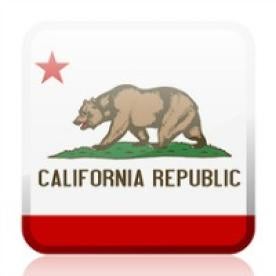The California Healthy Workplaces, Healthy Families Act of 2014 went into effect on July 1, 2015, and applies to all employers that employ at least one employee in California. Employees who work more than 30 days in a year in California (including part-time and temporary employees) are eligible for paid sick time.
All eligible employees will accrue one hour of sick time for every 30 hours worked (including overtime hours). An employee classified as exempt under the administrative, executive, or professional exemption will accrue sick time based on the employee’s normal work week or a 40-hour work week, whichever is less.
That said, employers are not completely powerless. Although employees begin accruing sick time on their date of hire, an employer can delay their use of accrued sick time until completion of 90 days of employment. Further, employers may cap the use of paid sick time at “24 hours or three days” in each year of employment. Finally, although accrued but unused sick time generally carries over from one employment year to the next, an employer may cap the total carryover at 48 hours or six days. (Note, however, that a “day” is not defined in the statute. As a result, until the California Division of Labor Standards Enforcement weighs in, calculating three “days” or six “days” of sick time may pose a challenge with respect to employees who work non-traditional schedules, such as four 10-hour workdays per week.)
Practical questions that may arise include the following:
Q: For what purposes can sick time be used?
A: Paid sick time may be used for the diagnosis, care, or treatment of an existing health condition, or for preventive care, in respect of the employee or the employee’s family member. Paid sick time may also be used for employees who are the victims of domestic violence, sexual assault, or stalking. (“Family member” means an employee’s parent, child, spouse, registered domestic partner, grandparent, grandchild, or sibling.)
Q: Can an employer award sick time up front, instead of tracking the accrual of sick time?
A: Yes. An employer can award sick time up front, provided that the amount of time awarded satisfies the statute’s total accrual and use requirements. Importantly, if an employer chooses to award sick time up front, the employer need not allow employees to carry over sick time from one employment year to the next.
Q: How does the law apply to returning workers?
A: The law requires an employer to restore accrued but unused sick time to an employee returning to work following a break in service of 12 months or less. However, the employer may require employees to complete 90 days of employment upon their return from a break in service before allowing use of sick time.
Q: If an employee has accrued but unused sick time upon separation, must the employer pay for that unused time?
A: No. The law does not require employers to pay out unused sick time.
Q: How is sick time counted for a part-time employee who calls in sick?
A: The statute does not speak to this, and the California agency charged with enforcing the statute has not yet clearly addressed this issue. However, we believe a fair application of the statute’s requirements would be to track a part-time employee’s use of sick time based on the number of hours the employee was scheduled to work on the day he/she called in sick.
Q: What pitfalls unique to the California sick time law should employers be aware of?
A: The law contains a rebuttable presumption of unlawful retaliation if an employer denies an employee the right to use accrued sick time, or discharges, threatens to discharge, demotes, suspends, or “in any manner” discriminates against a an employee within 30 days after the employee (a) files a complaint with the Labor Commissioner alleging a violation of the new sick time law, (b) cooperates with an investigation or prosecution of an alleged violation of the new law, or (c) opposes a policy, practice, or act prohibited by the new law. This means the employer bears the burden of overcoming the presumption of retaliation.
These are just some of the considerations regarding the new law that employers with California employees will need to consider in respect of sick time policies.




 i
i


